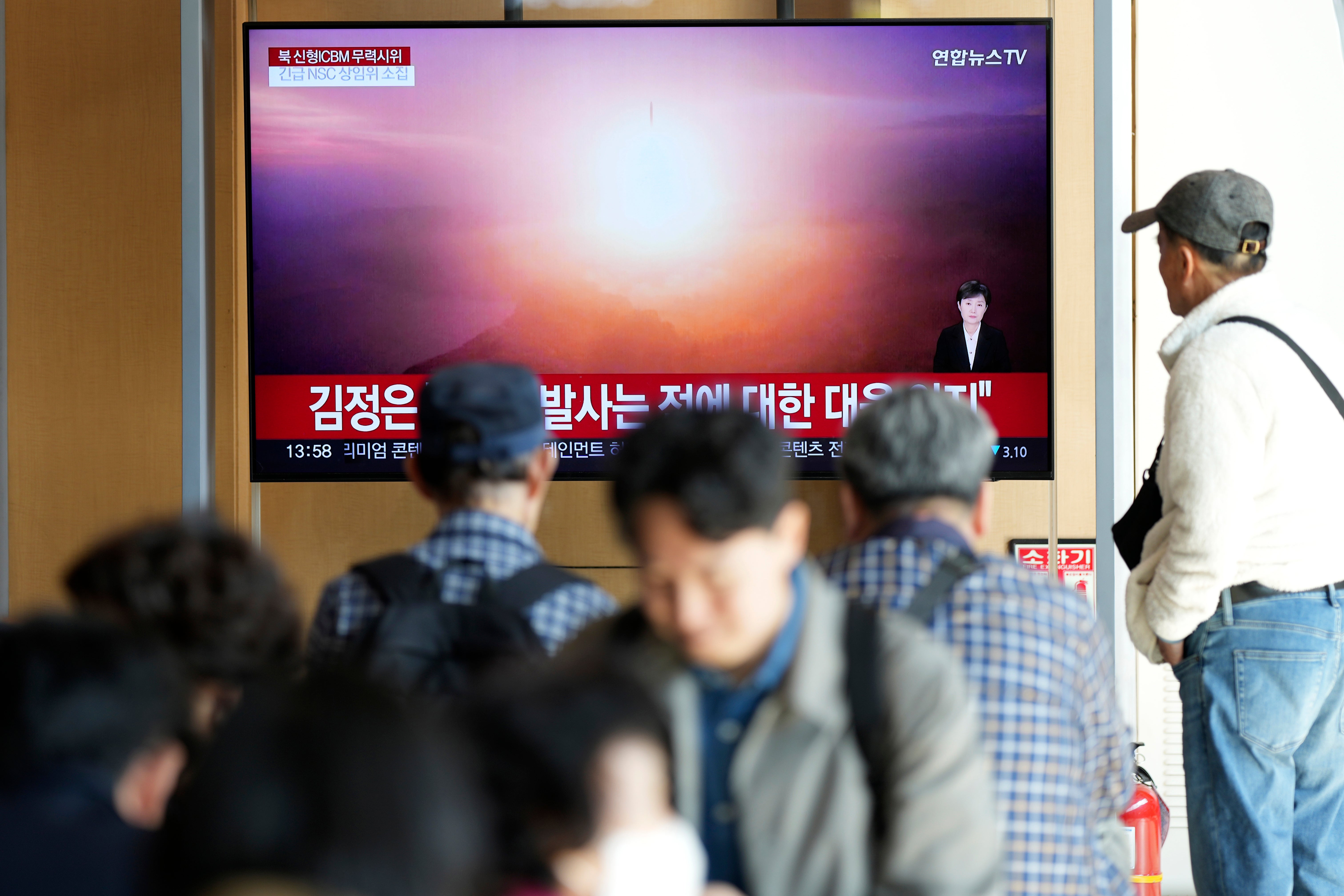North Korea conducts longest test of intercontinental ballistic missile yet
Missile reportedly flew a distance of 1,000km in 87 minutes
North Korea tested an advanced intercontinental ballistic missile on Thursday amid Western concerns about Pyongyang receiving weapons technology from Russia in return for allegedly sending soldiers to fight in Ukraine.
Pyongyang confirmed the launch, the first in nearly a year, a few hours after neighbours South Korea and Japan detected the firing of what they suspected was a new, more agile weapon capable of targeting mainland US, in a bid to grab American attention ahead of next week’s presidential election.
The test was ordered by leader Kim Jong-un and the missile flew longer than ever before, the country’s official news agency KCNA reported.
South Korea said it was the longest ballistic missile test by the North with a flight time of 87 minutes. The missile took off on a sharply lofted trajectory from near Pyongyang and splashed down about 200km west of Japan’s Okushiri island, off Hokkaido.
Japan said the missile climbed high into the atmosphere and flew a distance of 1,000km, reportedly setting new records of the country’s missile capabilities.
Mr Kim was present for the test and called it a warning to enemies "threatening the country's security".
“The test fire is an appropriate military action that fully meets the purpose of informing the rivals," the North Korean leader was quoted as saying by KCNA.
The test was conducted after the US claimed that North Korea had sent over 10,000 soldiers to Russia and about 3,000 of them were close to the frontline in Ukraine.
It came just hours after US defence secretary Lloyd Austin and his South Korean counterpart Kim Yong-hyun met in Washington and condemned the North’s alleged troop deployment in Russia.

The lofted trajectory of the missile flying at a sharply raised angle was intended to test its thrust and stability over much shorter distances relative to the designed range, partly for safety and partly to avoid the political fallout of sending a weapon far into the Pacific.
"I affirm that the DPRK will never change its line of bolstering up its nuclear forces," Mr Kim said in comments reported by KCNA, referring to the country by its formal name of Democratic People’s Republic of Korea.
The US criticised the test as “a flagrant violation" of multiple UN Security Council resolutions that "needlessly raises tensions and risks destabilising the security situation in the region".
US national security council spokesman Sean Savett said Washington would take all necessary measures to ensure the security of the American homeland and its South Korean and Japanese allies.
North Korea was sanctioned by the security council in 2006 and the measures were steadily strengthened over the years with the aim of halting its development of nuclear weapons and ballistic missiles.
South Korea and Japan denounced the launch as a threat to international peace and said they were coordinating with the US. The South's joint chiefs of staff spokesperson Lee Sung Joon said the test was possibly timed to the American election in an attempt to strengthen Pyongyang’s future bargaining power.
Mr Lee said South Korea and the US planned to conduct "sufficient bilateral military exercises, and trilateral ones involving Japan, in response to North Korean threats”.
North Korea's last intercontinental ballistic missile, Hwasong-18, was tested in December 2023. Fuelled by solid propellant and fired from a road launcher, it shot up at a sharply raised angle and flew for 73 minutes, translating to a potential range of almost 15,000km on a normal trajectory.
Join our commenting forum
Join thought-provoking conversations, follow other Independent readers and see their replies
Comments
Bookmark popover
Removed from bookmarks